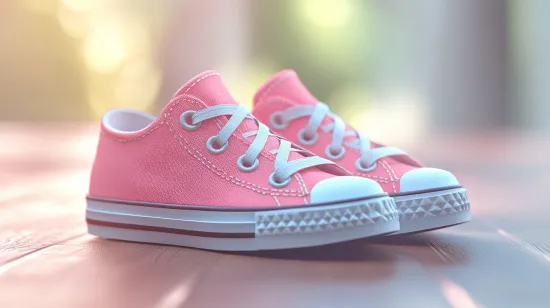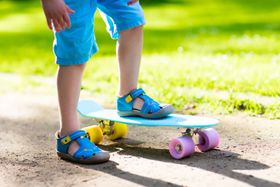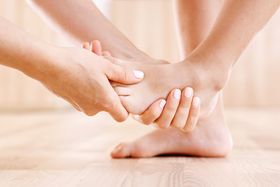Adaptive Footwear: Meeting the Needs of All Children
Uncover the different ways adaptive footwear can help your kid
Updated December 6, 2024.

Adaptive footwear offers comfort, mobility, and safety for elderly, those with disabilities and limited dexterity, and those with problematic foot conditions like plantar fasciitis.
While it's meant for adults, adaptive footwear can also support the lives of children. So, let's look at how these shoes can help your kid while ensuring their feet grow healthy.
» Help your kid deal with feet growing pain
Types Of Supportive Toddler Shoes
There are two different types of adaptive shoes for children:
- General-purpose Adaptive Shoes: Footwear with features like Velcro straps for children with dexterity challenges. They also include wide orthopaedic shoes for casts and braces.
- Special-purpose Adaptive Shoes: Footwear with features such as arch supports and heel counters to provide additional support and stability for children with conditions like clubfoot and flatfoot.
» Check out the best orthopaedic shoes for kids with flat feet
Checking the Need for Adaptive Footwear
Your kid may need supportive toddler shoes if it has developmental delays or foot deformities. Autistic children may also experience sensory issues with socks and shoes.
Here are some indicators that your kid needs adaptive footwear:
- Blistering
- Pain when putting on or taking off shoes
- Falling
- Unusual shoe wear pattern
Benefits Of Adaptive Shoes For Toddlers
Shoes for special needs children enhance comfort and reduce the risk of injury. They also help improve your kid's independence and mobility.
However, there are conflicting schools of thought about corrective shoes, and they might not be suitable for all children.
Selecting the Best Fit for support
To ensure a comfortable and functional fit with adaptive footwear, you should follow these steps:
- Consult A Specialist: An orthopaedist can recommend the best type, size, and brand of adaptive footwear for your child’s condition and needs.
- Test The Shoes Around Midday: Feet can swell around midday, so have your kid try the shoes then. Also, observe their walking pattern and behaviour to see if they're comfortable.
- Ensure Enough Space: To ensure your kid has enough wiggle room, check for at least a finger-breadth space between the longest toe and the end of the shoe.
- Break In Their Shoes: To break in the shoes, have your kid wear them for a few minutes a couple of times daily.
A Shoe For Every Kid's Need
Adaptive footwear is vital for improving the well-being and daily lives of children. They promote comfort, safety, and independence by addressing specific challenges such as mobility issues, foot deformities, and sensory sensitivities.
To find the most suitable adaptive footwear for your kid, seek professional advice and explore the range of orthopaedic shoes from First Walkers. They are lightweight, flexible, and have a wide toe box for natural foot development.






